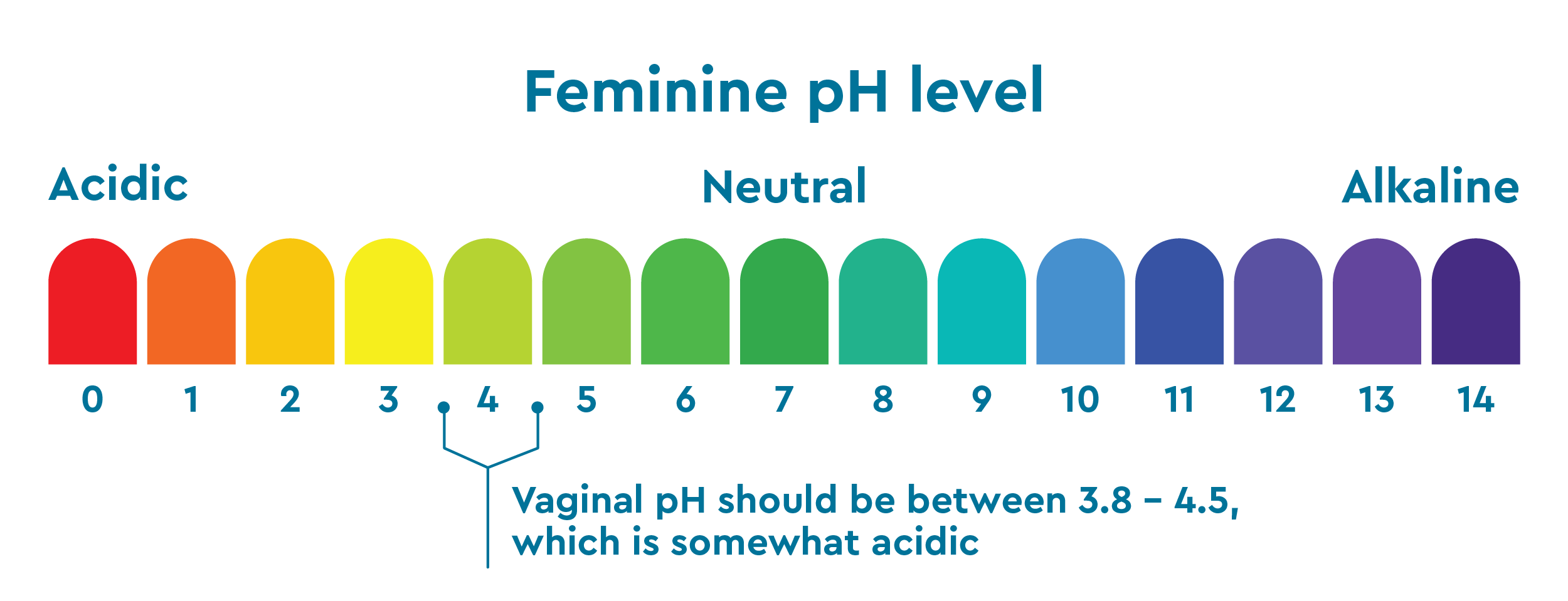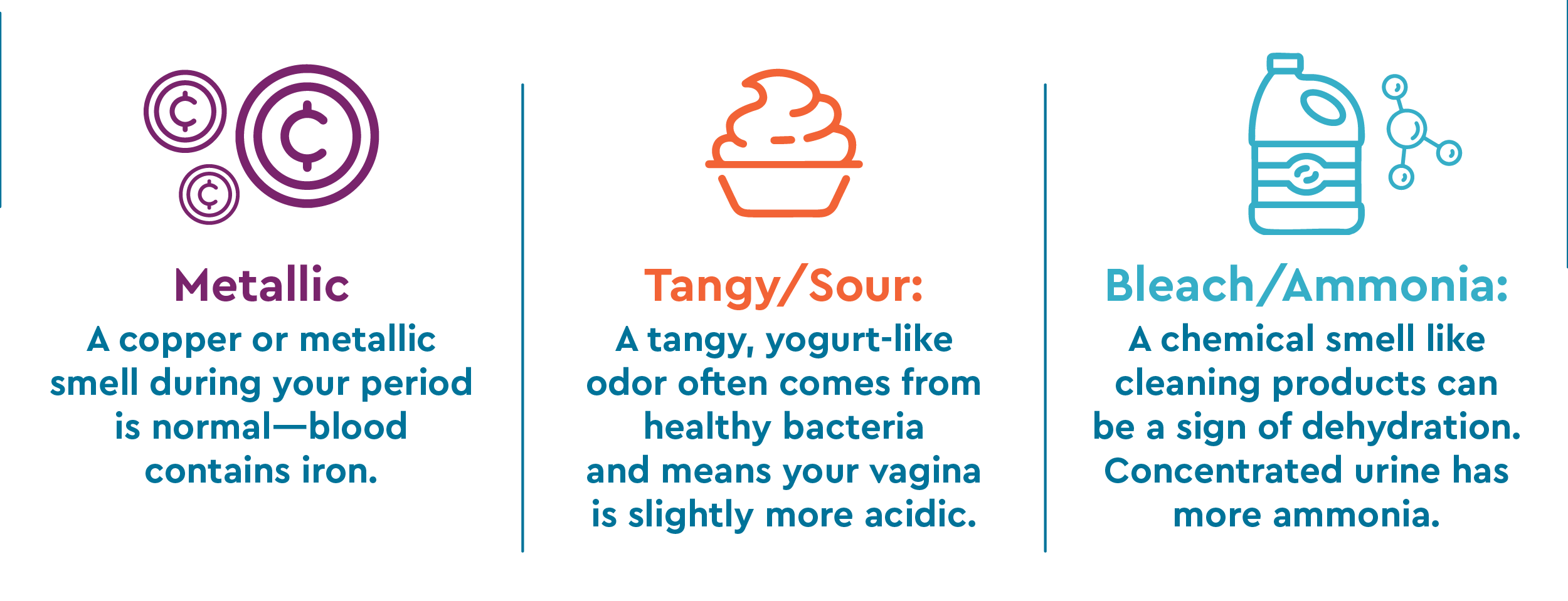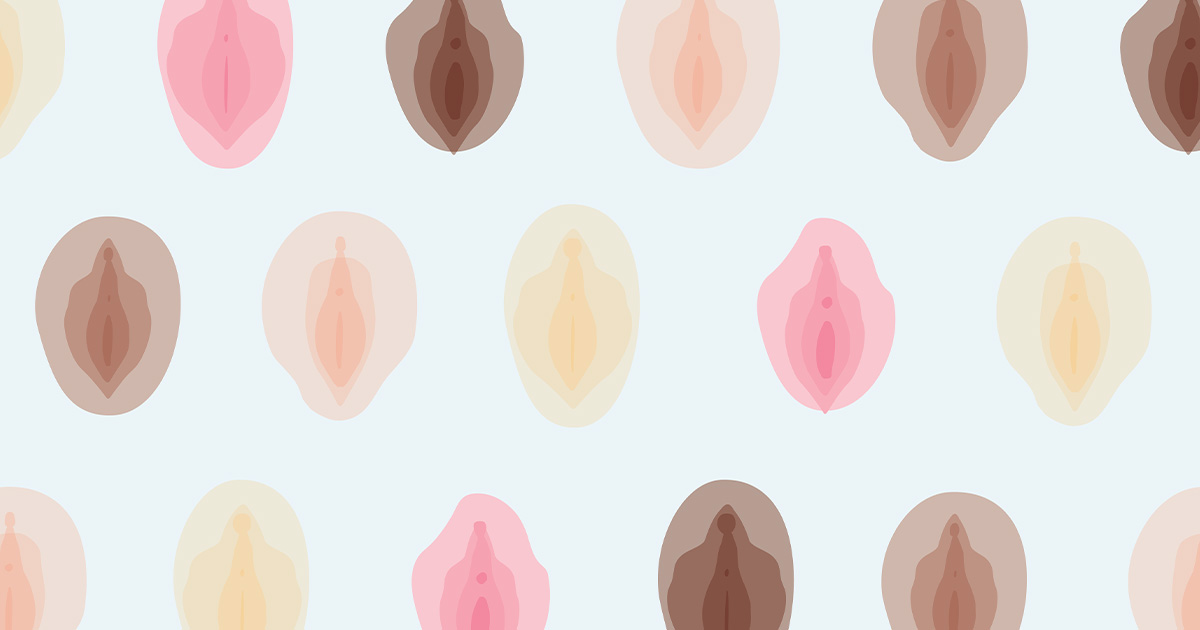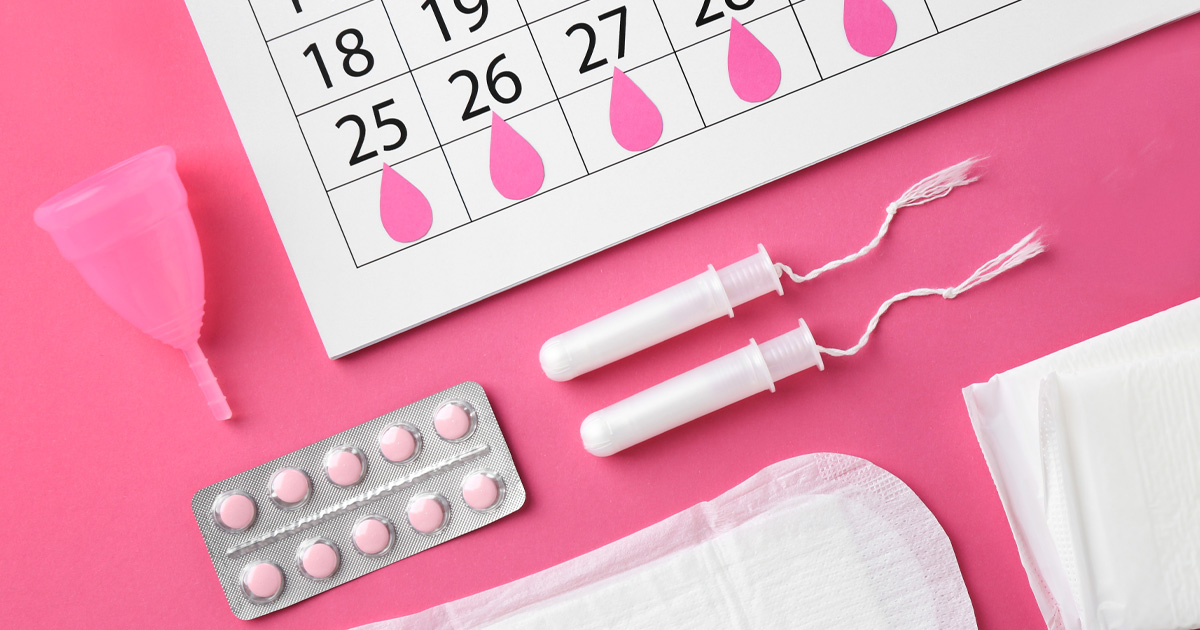
Self-care, What's Up, Down There
Vaginal Odor: What’s Normal, What’s Not
There are certain topics we all worry about but may feel too embarrassed to discuss. Vaginal odor is often one of them. If you’ve ever wondered, “is this smell normal?” You’re not alone! Understanding your body’s natural scent is important for maintaining good vaginal health. In this article, we’ll decode what’s normal, what’s not, and when it’s time to loop in your provider.
How should a vagina smell?
One of the most pervasive myths is that vaginas shouldn’t smell. Products like feminine washes and whole-body deodorants are constantly marketed to women telling us that our vaginas should smell like flowers or cotton candy. They claim that having any other smell is somehow unclean. This is simply not true. It’s completely normal for vaginas to have an odor. This is because the vagina is a naturally acidic environment that contains millions of good bacteria. That bacteria can produce substances like lactic acid and hydrogen peroxide which do a powerful job of warding off bad bacteria.
A healthy vagina can smell like many different things. Depending on your unique chemistry, it could smell musty, tangy, or slightly sweet. It’s important to know what a typical odor for you is, so you can spot when something’s off.
Normal Vaginal Odors

There are plenty of normal factors that can cause our vaginal odor to change from medications to our menstrual cycle, sexual activity, or even certain foods. A change in odor can simply mean a change in pH levels. If you remember from high school chemistry class, the pH scale measures the acidity or alkalinity of a substance on a scale from 0 to 14 – the lower the number, the more acidic. A healthy vaginal pH should be between 3.8 – 4.5, which is somewhat acidic. It’s normal for your pH levels to slightly shift causing a change in odor. Here are some possible odors you may encounter (which are completely normal):
- Metallic: You might notice a metallic smell like that of copper pennies during your period. Blood contains iron which can explain the metal smell.
- Tangy or sour: If you notice a smell that is tangy like yogurt this could mean that your vagina is slightly more acidic than normal. That smell is often due to the bacteria lactobacilli which is a healthy bacteria found in the vagina.
- Bleach or ammonia: If you notice a slightly chemical smell that smells like cleaning products, this could be a sign that you’re dehydrated. Urine contains ammonia and when you’re dehydrated those levels can build up, causing a smell when you wipe.
Unhealthy Causes of Vaginal Odors
While temporary odors are often nothing to fret about, if you notice certain lingering odors, it could be a sign of a potential infection.
One common cause of an unhealthy odor is bacterial vaginosis (BV). It is often associated with a foul, fishy smell. Often, you may experience other symptoms like a slightly grey or cloudy vaginal discharge, itchiness, or burning when you pee.
If you notice a sour tangy smell accompanied by a cottage-cheese-like discharge, this could be a sign of a yeast infection. Typically, yeast infections are also accompanied by a burning and itching sensation.
If you notice an unpleasant order that is lingering and accompanied by other symptoms, it’s important to contact your Axia Women’s Health provider. Infections like BV or yeast are easily treated, so it’s important to seek help so you can find relief. BV can often be treated with a round of antibiotics, while yeast infections may be treated with antifungal medications. Either way, it’s best to consult with your provider to determine the underlying cause of your symptoms.
How To Prevent Unpleasant Odor
Preventing unwanted odor doesn’t have to be complicated. There are plenty of products marketed to women to help us smell “fresh” down there, but the reality is that those products can do more harm than good. Axia OB/GYNs recommend steering clear of anything with fragrance when caring for your vaginal health. This includes avoiding any type of scented lubricants, washes, wipes, whole-body deodorants, or tampons.
As mentioned before, it’s unnatural for vaginas to smell like a bouquet of flowers. Any product that promotes this is at best unnecessary, and at worst could cause you irritation and discomfort.
The best things you can do to avoid unwanted odor are:
- Maintain a regular hygiene routine by washing your vulva with warm water and a fragrance-free soap.
- Stick to cotton underwear that is breathable and doesn’t trap odors.
- During your period, regularly change your tampon or pad every 4-8 hours
- Change out of sweaty clothes after exercising.
- Stay hydrated to help flush out unwanted bacteria.
Frequently Asked Questions About Vaginal Odor
- What does a healthy vagina smell like?
A healthy vagina may have a slightly tangy, musky, or even sweet scent — and that’s totally normal. The vagina has a naturally acidic environment and is home to healthy bacteria (like lactobacilli), which can contribute to its natural scent. The important thing is knowing your normal, so you can detect when something changes.
- Is it normal for vaginal odor to change during my period or after sex? Yes. Hormones, blood (which contains iron), and semen (which is more alkaline) can all temporarily shift your vaginal pH, which may result in a different odor for a short time. This is usually nothing to worry about.
- What foods can affect vaginal odor? Strong-smelling foods like garlic, onions, asparagus, and even coffee can impact your body’s natural scent — including vaginal odor. High sugar intake may also promote yeast growth, which can affect odor and increase the risk of yeast infections.
- Are feminine hygiene products safe to use for odor control? Scented soaps, wipes, douches, and sprays are not recommended. They can disrupt your natural pH and irritate sensitive skin. Instead, gently wash your vulva (not the vagina) with warm water and a fragrance-free cleanser.
- Can probiotics help with vaginal odor? In some cases, yes. Probiotics (found in yogurt or supplements) may help maintain or restore healthy vaginal flora. However, they’re not a substitute for medical treatment if you have an infection. Talk to your provider about whether probiotics might help in your case.
When To Talk To Your Provider
Odor alone is rarely cause for concern. However, if a change in scent is accompanied by other symptoms such as redness, itchiness, or discharge, it could be a sign of a potential infection. Fortunately, many of these infections can be easily treated by your Axia Women’s Health provider.
Remember, a healthy body starts with you. Getting in tune with your body and its scents is an empowering way to take charge of your health. The more you are familiar with what’s normal for you, the easier it will be to notice if something is amiss.
























































